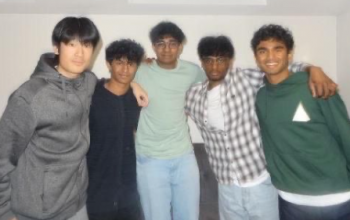Members of a local group spoke about the struggles of finding support after turning 18 and dealing with almost year long wait times to get a diagnosis in a recent meeting.
The Larch club, a local support group for autistic adults 23 and over, held an information event for Neurodivergence Celebration Week.
Different members of the group expressed their concerns and frustrations with organisations and services they reach out to.
One member of the group, Edward, shared his experience in trying to get assessed for autism as an adult.
He said: “I went to my GP and then they sent me forms in the mail to fill out. I sent them back about a year ago.
“They replied to me with a letter and said, ‘we think you need an assessment, you’re on the waiting list.’ The waiting list is two years.”
Edward said he is still waiting on his diagnosis and believes he may have been overlooked as a child because his quietness was interpreted as shyness and not autism.
Some group members mentioned the challenges of finding a job and going through the interview process.
Helen, mother of a group member, said: “I think you need the support even more [as an adult] to help you get jobs and help you meet people and feel comfortable.”
Natalie Spillett, a dyslexia specialist who works assessing and teaching students that have specific learning difficulties, said: “Once you get past the age of 16 in the UK, they kind of think there’s no point. So, there’s no services you can go to.”
Spillett said if you go to your GP and ask for an autism assessment, they will often say there is no point in getting an assessment unless you are planning on taking medication.
The long waiting times can sometimes lead people, such as Edward, towards going to a private doctor to speed up the diagnosis.
Edward said: “We were thinking we should go private, and it would be good to get the diagnosis but what happens then?”
Robbie, another member of the Larch group, said: “People tend to think you grow out of autism after 18, they think you are not on the spectrum anymore, but actually, it is a lifelong condition.”
Despite the lack of services for adults with autism, community members still find ways to support each other and create a safe environment where people with similar minds can meet to feel comfortable.
The Larch club is one such group that has created a community in Kingston and provides services and support to adults with autism in this area.
Helen said: “Going easily to a pub or easily to a cinema is quite difficult, but if they come somewhere like this, they can be more relaxed.”
To contact the Larch Club contact Leeni Szalay Winter Tel: 07393 378833






